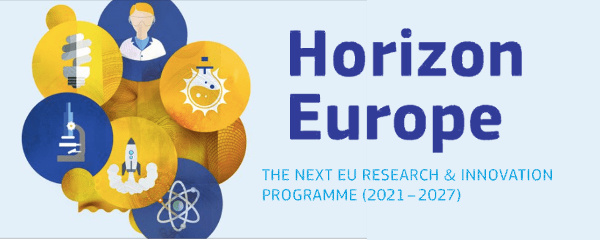 On Wednesday, 24 February 2021, BU’s Research, Support & Development Office will be hosting our very first, pilot Virtual STEAMlab (Science/Tech/Engineering/Arts/Maths lab) event under the aegis of the strategic investment area (SIA) of Animation, Simulation & Visualisation (ASV). It will also be the first of a series of 2-hour long virtual ASV STEAMlabs to be held in the course of 2021.
On Wednesday, 24 February 2021, BU’s Research, Support & Development Office will be hosting our very first, pilot Virtual STEAMlab (Science/Tech/Engineering/Arts/Maths lab) event under the aegis of the strategic investment area (SIA) of Animation, Simulation & Visualisation (ASV). It will also be the first of a series of 2-hour long virtual ASV STEAMlabs to be held in the course of 2021.
This first STEAMlab will introduce and address four core priority areas for the strategic development of ASV cross-faculty, multi-disciplinary collaborations across BU in conjunction with external partners. These 4 areas are:
Virtual Production
Digital Health
Environment in Crisis
Virtual Heritage
This first STEAMlab will focus on these ASV themes in break-out rooms to target specific funding opportunities.
The ideas generated at this event may also be used to help select colleagues for Scramble events at short notice.
Booking onto this event
To take part in this exciting opportunity, all participants should complete the ASV Virtual STEAMLab Application Form V2 and return this to Nicolette Barsdorf-Liebchen at nbliebchen@bournemouth.ac.uk by Friday, 5 February 2021.
By applying, you agree to attend for the full duration of the event on 24 February 2021, 1 – 3 pm. Places are strictly limited and you will be contacted to confirm your “virtual space” by 12 February 2021.
If you have any queries prior to submitting your application, please contact Nicolette Barsdorf-Liebchen.
The Brief
We’re seeking to come up with highly innovative and urgently required research which is ambitious in scope and will require a high level of expertise, commitment and funding. The research must address challenges in the above-mentioned areas, and seek to deploy BU’s considerable ASV expertise and assets.
In short, we anticipate the development of innovative, ground-breaking and ambitious projects which have the capacity to attract significant, high value funding from the public and private sectors.
Who should attend?
We welcome those who wish to contribute to having a positive impact through addressing these challenges, but in particular, we are specifically targeting the following:
- Those academics whose research aligns with one or more of these core areas, or whose research would benefit from the multidisciplinary, collaborative engagement supported by the ASV SIA;
- Who has experience of involvement in medium to large research projects, and finally;
- Who either has the capacity to lead as PI on ideas arising from the STEAMlab in a working group towards development of a substantial grant application of close to or above £1 million, or has the ambition, research track record and commitment to be involved in the same.
We will also be inviting relevant external attendees, such as digital technology companies, to contribute on the day.
Some Answers to your FAQs:
Do I need to do anything in advance?
No, you do not. During the STEAMLab, you’ll be guided through a process which results in the development of research ideas. The process facilitates creativity, potentially leading to grand, innovative and interdisciplinary research ideas. These ideas will be explored with other attendees, and further developed based on the feedback received.
What is the immediate objective?
The objective by the end of the STEAMlab is to have scoped some leading and grand ideas around which a working group or cluster can be formed to take forward towards the development of a large grant application.
What do I need to do afterwards?
Your project idea may be “oven-ready”, but it is more likely than not that, given the level of pioneering innovation sought, you/your group’s project idea/s will require some time to crystallise fully, and for the optimum partners to be found for the bidding consortium, and bringing to fruition a fully-fledged grant application. To this end, it is envisaged that you and your potential collaborators will be committed to meeting on a regular basis, with a firm timetable. Substantial administrative support will be available from both RDS as a whole and the ASV Research Facilitator, Dr Nicolette Barsdorf-Liebchen, to advance your project development and manage working groups.
What if my topic area is very specialised, within fields such as medical diagnostics or environmental science?
Your contribution will be very welcome! One of the main benefits of a STEAMlab event is to bring together individuals with a range of backgrounds and specialisms who are able to see things just that bit differently to one another.
 The RDS Funding Development Briefings have been occurring weekly, on a Wednesday since January. Thank you to all of you who have engaged in the sessions, it’s been a pleasure to see so many faces joining us.
The RDS Funding Development Briefings have been occurring weekly, on a Wednesday since January. Thank you to all of you who have engaged in the sessions, it’s been a pleasure to see so many faces joining us. Exciting online training events for researchers on Wednesday.
Exciting online training events for researchers on Wednesday. Tuesday 23rd March 2021, 10.00am – 12.30pm
Tuesday 23rd March 2021, 10.00am – 12.30pm The RDS Funding Development Briefings now occur weekly, on a Wednesday at 12 noon.
The RDS Funding Development Briefings now occur weekly, on a Wednesday at 12 noon. The RDS Funding Development Briefings now occur weekly, on a Wednesday at 12 noon.
The RDS Funding Development Briefings now occur weekly, on a Wednesday at 12 noon. The RDS Funding Development Briefings now occur weekly, on a Wednesday at 12 noon.
The RDS Funding Development Briefings now occur weekly, on a Wednesday at 12 noon. The Horizon Europe (HEU) proposal templates are currently under development and have not been published yet. However, UKRO has obtained some information regarding the first version of the proposal template, which indicates that there will be several differences when compared with the Horizon 2020 proposal.
The Horizon Europe (HEU) proposal templates are currently under development and have not been published yet. However, UKRO has obtained some information regarding the first version of the proposal template, which indicates that there will be several differences when compared with the Horizon 2020 proposal. Every BU academic has a
Every BU academic has a  By clicking on this box, on the left of the Research Blog home page just under the text ‘Funding Opportunities‘, you access a
By clicking on this box, on the left of the Research Blog home page just under the text ‘Funding Opportunities‘, you access a 

 The RDS Funding Development Briefings now occur weekly, on a Wednesday at 12 noon.
The RDS Funding Development Briefings now occur weekly, on a Wednesday at 12 noon. On Wednesday, 24 February 2021, BU’s Research, Support & Development Office will be hosting our very first, pilot Virtual STEAMlab (Science/Tech/Engineering/Arts/Maths lab) event under the aegis of the strategic investment area (SIA) of Animation, Simulation & Visualisation (ASV). It will also be the first of a series of 2-hour long virtual ASV STEAMlabs to be held in the course of 2021.
On Wednesday, 24 February 2021, BU’s Research, Support & Development Office will be hosting our very first, pilot Virtual STEAMlab (Science/Tech/Engineering/Arts/Maths lab) event under the aegis of the strategic investment area (SIA) of Animation, Simulation & Visualisation (ASV). It will also be the first of a series of 2-hour long virtual ASV STEAMlabs to be held in the course of 2021. The RDS Funding Development Briefings now occur weekly, on a Wednesday at 12 noon.
The RDS Funding Development Briefings now occur weekly, on a Wednesday at 12 noon.











 Beyond Academia: Exploring Career Options for Early Career Researchers – Online Workshop
Beyond Academia: Exploring Career Options for Early Career Researchers – Online Workshop UKCGE Recognised Research Supervision Programme: Deadline Approaching
UKCGE Recognised Research Supervision Programme: Deadline Approaching SPROUT: From Sustainable Research to Sustainable Research Lives
SPROUT: From Sustainable Research to Sustainable Research Lives BRIAN upgrade and new look
BRIAN upgrade and new look Seeing the fruits of your labour in Bangladesh
Seeing the fruits of your labour in Bangladesh ECR Funding Open Call: Research Culture & Community Grant – Apply now
ECR Funding Open Call: Research Culture & Community Grant – Apply now ECR Funding Open Call: Research Culture & Community Grant – Application Deadline Friday 12 December
ECR Funding Open Call: Research Culture & Community Grant – Application Deadline Friday 12 December MSCA Postdoctoral Fellowships 2025 Call
MSCA Postdoctoral Fellowships 2025 Call ERC Advanced Grant 2025 Webinar
ERC Advanced Grant 2025 Webinar Update on UKRO services
Update on UKRO services European research project exploring use of ‘virtual twins’ to better manage metabolic associated fatty liver disease
European research project exploring use of ‘virtual twins’ to better manage metabolic associated fatty liver disease